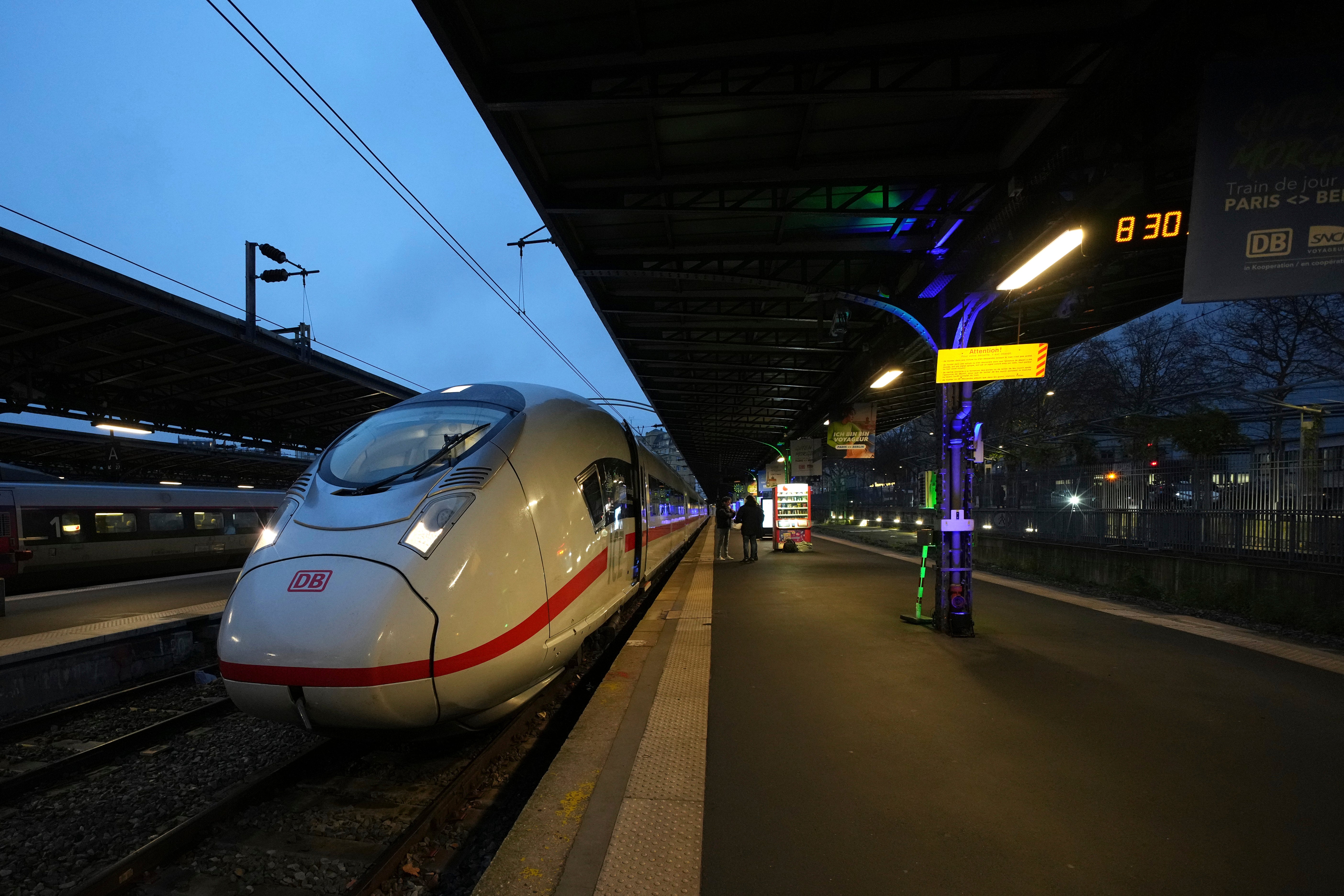New bullet train finally connects two of Europe’s biggest cities
There is also a slower overnight train between the two capitals
A new direct high-speed train has been launched connecting two of Europe’s biggest cities.
Germany and France on Monday launched the train between Berlin and Paris, a connection hailed as a symbol of a close friendship between the two countries.
Germany and France are the European Union’s two most populous countries and its biggest economies. Berlin Mayor Kai Wegner said the new railway connection, operated in collaboration with France’s SNCF, “is also a good symbol of the German-French friendship.”
The move is also being sold as a sign of Europe's potential to attract more travelers to the rails.
The bullet train, however, is unlikely to be a game-changer. At about eight hours, the once-a-day service with German operator Deutsche Bahn's ICE trains offers an increase in convenience rather than any major time saving compared with other, indirect connections.
Summary
- Germany and France launched a direct high-speed train route between Berlin and Paris.
- The eight-hour journey offers convenience but not significant time savings compared to existing indirect routes.
- The new service, operated by Deutsche Bahn, runs once daily and stops in Frankfurt, Karlsruhe, and Strasbourg.
- This launch coincides with Deutsche Bahn's efforts to improve punctuality through infrastructure modernization.
- The train is seen as a symbol of German-French friendship and aims to promote rail travel within Europe.
The launch comes as Deutsche Bahn works to shed its reputation for the unreliability it has built up over recent years. Last month, only 60% of its long-distance trains arrived at their destination punctually — defined as under six minutes late.
The state-owned operator has embarked on a drive to improve the situation by 2027 and is aiming for punctuality of more than 75%.
A key part of that is a campaign to modernize dozens of stretches of railway. The first part of that program was completed when one of the country’s busiest routes, a 70-kilometer (45-mile) stretch between Frankfurt and Mannheim, reopened Sunday — on time — after five months of closure for an overhaul of tracks, stations and other infrastructure.
The government blames long-term underinvestment by its predecessors for problems with the railway.
The new train stops en route in Frankfurt, Karlsruhe and the French city of Strasbourg, one of the European Parliament's homes. The westbound train is scheduled to arrive in Paris just before 8 p.m., while the eastbound one arrives in Berlin just after 6p.m.

There is also a slower direct overnight train between the two capitals, three times a week. That connection was launched last year by Austrian operator ÖBB, which has spearheaded something of a revival of night trains in Europe after some railways cut them back or abandoned them entirely. Deutsche Bahn ended its sleeper service on the route 10 years ago.
The new Berlin-Paris ICE is part of the annual mid-December shakeup of European train timetables. Among other things this time around, there's also a new direct high-speed train connection between Munich and Amsterdam, a seven-hour journey.
German Transport Minister Volker Wissing also said it is more than “just a new, additional offer.” He said, “we still have a lot of potential to get as many people as possible onto the rails inside Europe with attractive offers, including for longer journeys and live out this friendship.”
Bookmark popover
Removed from bookmarks